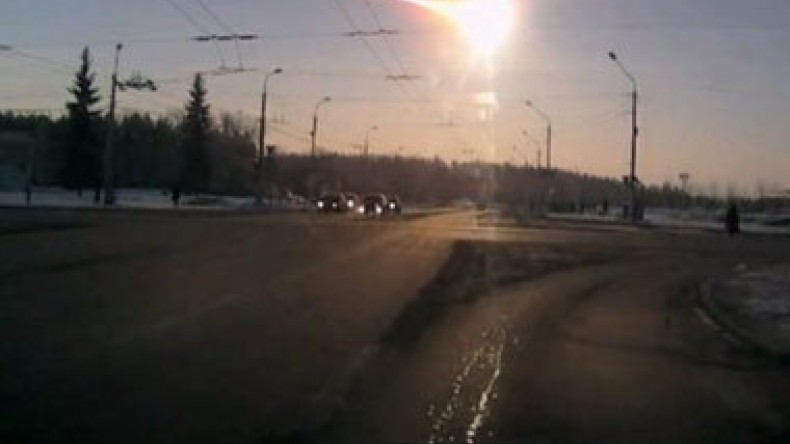
Clean-up team sent to meteorite-hit Urals
A 20,000-strong team has been sent to the Ural mountains as part of a rescue and clean-up operation after Friday's meteor strike, BBC reported, citing Russia's emergency ministry.
President Vladimir Putin ordered the operation to help some 1,200 people who were injured, including 200 children, mostly by shattered glass.
The shockwave blew out windows and rocked buildings around Chelyabinsk.
A fireball streaked through the clear morning sky, followed by loud bangs.
A large meteorite landed in a lake near Chebarkul, a town in Chelyabinsk region, and Friday morning's dramatic passage was witnessed hundreds of kilometres away.
Mr Putin said he thanked God that no big fragments of the 10-tonne meteor - which was thought to be made of iron and travelling at some 30 km (19 miles) per second - had fallen in populated areas.
It had entered the Earth's atmosphere and broke apart 30-50 km (20-30 miles) above ground, according to Russia's Academy of Sciences, releasing several kilotonnes of energy - the equivalent of a small atomic weapon.
The Emergencies Ministry urged calm, saying background radiation levels were normal after what it described as a "meteorite shower in the form of fireballs."
"The explosion was so strong that some windows in our building and in the buildings that are across the road and in the city in general, the windows broke," Chelyabinsk resident Polina Zolotarevskaya told BBC News.
The Chelyabinsk region, about 1,500km east of Moscow, is home to many factories, a nuclear power plant and the Mayak atomic waste storage and treatment centre.
Newsfeed
Videos






























